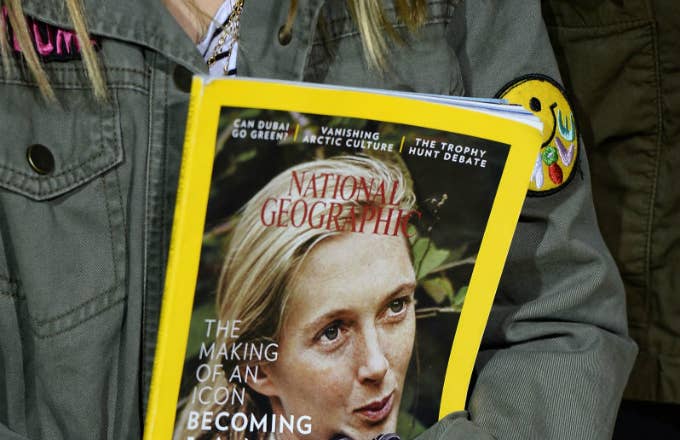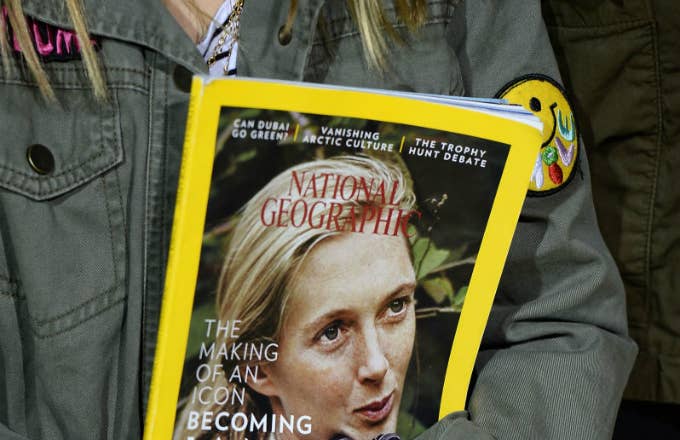
ForNational Geographic's April 2018 issue, the company looked at race in the outside world but also within their own brand.
In order to do so, the magazine hired John Edwin Mason, a professor who has studied the history of photography and the history of Africa—the two intersections that Nat Geo needed to examine in their past issues.
"What Mason found in short was that until the 1970s National Geographic all but ignored people of color who lived in the United States, rarely acknowledging them beyond laborers or domestic workers," wrote editor-in-chief Susan Goldberg in a letter. "Meanwhile it pictured 'natives' elsewhere as exotics, famously and frequently unclothed, happy hunters, noble savages—every type of cliché."
Goldberg is the magazine's 10th editor since its 1888 conception, and the first woman EIC and first Jewish EIC. She continued that it "hurts to share the appalling stories from the magazine’s past." But it was inevitable when they decided to embark on the issue of race for their April issue. "We thought we should examine our own history before turning our reportorial gaze on others," she said.
It turns out National Geographic had a few recurring themes, like "the native person fascinated by Western technology" and an "excess of pictures of beautiful Pacific-island women" who were often bare-breasted. Goldberg's deep dive includes specific examples like, "In a full-issue article on Australia that ran in 1916, Aboriginal Australians were called 'savages' who 'rank lowest in intelligence of all human beings.'"
"The coverage wasn’t right before because it was told from an elite, white American point of view, and I think it speaks to exactly why we needed a diversity of storytellers,” Goldberg told theAssociated Press. "So we need photographers who are African-American and Native American because they are going to capture a different truth and maybe a more accurate story."
Moving forward, it should be interesting to see what Nat Geo captures.

